Hello
Please note that most images in this newsletter are clickable for more details.
Don't forget to read our latest modelling tips and unboxing videos located at the bottom of the newsletter.
Feel free to send this newsletter to your friends, family and club members if you think they will benefit from it. They can subscribe for free.

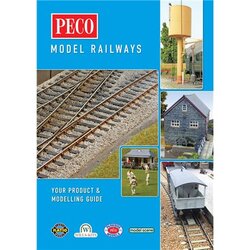
Building a layout from scratch can be quite an undertaking, especially for modellers who are relative newcomers to the hobby. Joining a model railway club and viewing layouts at exhibitions can be a great source of inspiration and chatting to experienced modellers can also be a very important source of information. Some modellers enjoy developing a 'self-taught' philosophy and with the preponderance of available websites, YouTube channels, blogs and forums the Internet can be a very rich vein of material to tap into. Although the Internet is a huge repository of information, there is also a significant volume of written material available covering a wide swath of subjects relating to layout configuration and operation. Many of these publications have been written by well-known manufacturers, such as Peco, and as such they aim to cover a variety of subjects in a straightforward and easy-to-digest format. Let's take a look at some of the material published by Peco to assist modellers with various aspects of layout design and operation.
The Guide to Railway Modelling & Layout Construction is a great place for newcomers to start. This 124-page guide takes a holistic approach to the process and guides the reader from initial layout design considerations through to the completion of the layout. With easy-to-follow practical steps and fully illustrated throughout, this guide is a very useful source of reference. The 62-page Compendium of Track Plans could be a useful source of inspiration for those not sure about their ideal layout configuration. The book contains 50 different plans of varying sizes for N, OO/HO and O Gauges and is fully illustrated throughout. For modellers who are working with space constraints in OO gauge, the 60 Plans for Small Locations could also be an invaluable guide and source of reference.
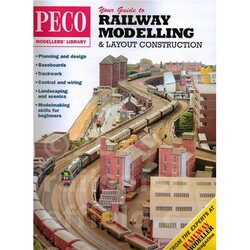
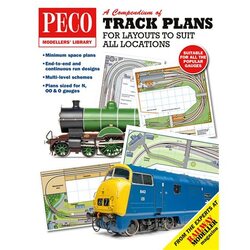
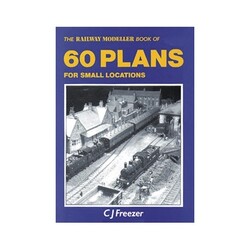
The Shows You How collection is a series of booklets published by Peco that address specific aspects of layout design and operation. The first in the series is Layout Planning and Design which guides the modeller through a number of design aspects such as track formations, allowing for clearances and working with different radii of track. This is then followed up by Building Baseboards which looks at baseboard designs with a view to optimising a particular type of baseboard to ideally match the chosen layout design. Other aspects covered include integrating gradients and joining baseboard sections. The third instalment in the series is entitled Laying the Track, which covers cutting and joining track sections, the use of flexible track and Tracksetta tools plus choosing and laying an appropriate ballast type.
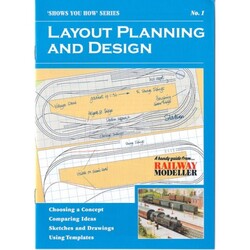
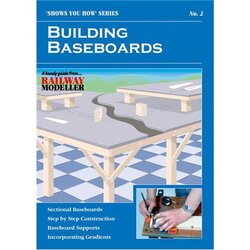
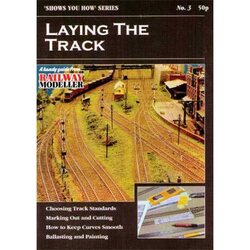
Inevitably, when it is time to lay the track then consideration will need to be given to how the layout will be wired. The booklet Wiring the Layout (Part 1) introduces the concept of two-rail wiring and the pros and cons of Analogue and DCC control systems. Also covered are considerations for electric point and signal control. More advanced aspects of wiring are considered in part 2. With the layout starting to take shape, now is a good time to consider scene elements that will be used to populate the layout. For novice modellers new to kit construction the booklet Kit Construction for Beginners will be a useful guide to this aspect of railway modelling. The booklet covers the tools and adhesives required to work with card, plastic and multimedia kits and gives handy hints and tips on painting and weathering techniques. The booklet Modelling the Landscape looks at the various options for building the environment including creating rock faces, the use of scatter and integrating tunnels and bridges into the landscape.
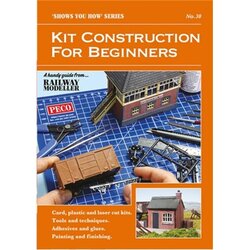
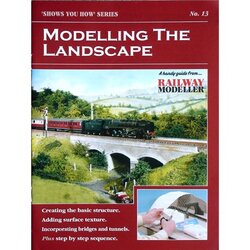
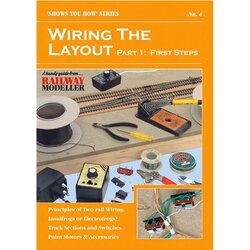
The growth of DCC-configured locomotives over the last 15-20 years has been phenomenal. That said, for some the concept may appear jargon-based and confusing. The Introducing DCC booklet aims to demystify the concept and explain Digital Command Control in simple terms. It goes on to cover DCC control systems, conversion of existing layouts and includes a very helpful glossary of terms used. The controlling mechanisms for Operating Points and Signals on layouts can be quite a lengthy process to set up. Luckily, the booklet of the same name offers comprehensive coverage of this specialised subject, including the ideal installation sequence and the operation of various motor types and the use of plug-and-play systems such as SmartSwitch. Another aspect of railway modelling that is sometimes overlooked is the operation of overhead wires. The Modelling Overhead Catenary booklet looks at this subject in depth and offers practical guidance for modellers looking to create a catenary-based system.
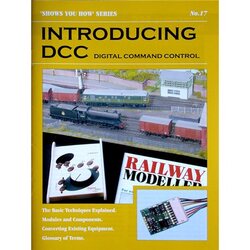
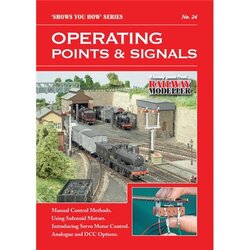
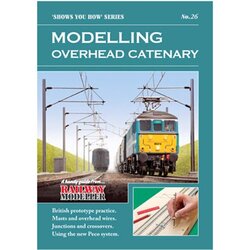
The booklets covered here are just part of an extensive range of publications offered by Peco to assist modellers of all abilities on a range of layout-related issues. The Shows You How series are especially useful in that they are concise, fully illustrated and easy to read. They are also good value for money in that modellers can purchase individual booklets of interest rather than spending larger sums of money on more generalised publications. If you are planning a new project, why not have a look and see what Peco publications are available to offer guidance and advice?
- Who are the model manufacturer Victrix and what do they specialise in ?
- What are the advantages of using track screws to secure track to a baseboard?
- Were brake vans always positioned at the rear of a rake?
- Where should I install a siding on my layout ?
- What clearance is required when telegraph lines cross railways?
- Can I use fibre optics as a single lighting solution for buildings and streetlamps on my layout?
- What is meant by a dropped baseboard?
- What does scale mean?
- How do you weather a model ship's decking?
- How to make your own trees
- Aoshima 06296 Honda Z50JZ -1 Bike in 1/12 scale
- Ratio 214 Yard Crane in N Gauge
- Ratio 238 SR Concrete Huts N Gauge
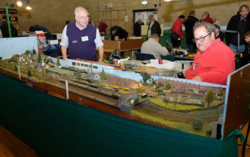
Do you need to order?
Send us an email or give us a call to check availability or to reserve anything, whatever scale you model in. As usual, if we do not have in stock what you are looking for, we will order it for you and you will get it fast (usually within a week if the manufacturer has it in stock). We place weekly orders with most suppliers.
Remember, you can park for free for one hour on the High Street. So no excuse not to come and visit us!
Upstairs Downstairs is open Tuesday to Saturday 10am till 4.30pm. Obviously, our website is open 24h a day and we can post to most locations, including Europe, USA and Australia.
Upstairs Downstairs
3 Pier Street
Sandown, PO36 8JR
Isle of Wight
Tel: 01983 406 616
http://www.trainshop.co.uk or find us on Facebook
If for some reason you do not want to receive this newsletter anymore, click this link to unsubscribe